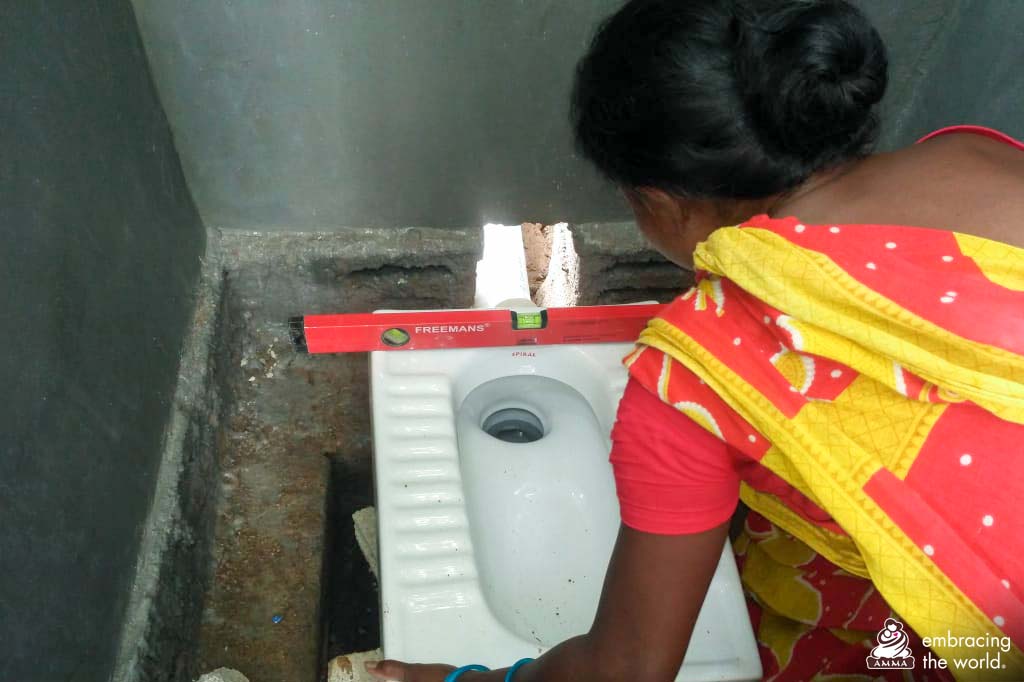Over 70% of India’s population lives in rural areas where open defecation is extremely prevalent. This practice leads to disease, poor hygiene, lack of privacy and an increased risk of sexual assault. Amrita University’s research center AMMACHI Labs is committed to innovations that will help make proper sanitation possible for all Indians. The center has now developed a new mould-based technique for toilet construction that makes constructing toilets easy, efficient and economically viable.
The toilet mould was developed by engineers at AMMACHI Labs using 3D modeling. The mould’s key benefits are reductions in both time and cost for constructing toilets in remote, rural settings. Lightweight and easy to work with, when used by a semi-skilled group of four women, the total time to construct a toilet is nearly cut in half – constructing a unit with the mould takes approximately 40 hours, as opposed to an average of 76 hours in conventional construction. Innovations like these are crucial in developing scalable solutions to solve massive challenges like ending open defecation.
For now, the team has manufactured 10 moulds for a September toilet-building sprint. The team aims to build hundreds of toilets this month, side by side with rural women in the villages adopted by M.A. Math as part of the Amrita SeRVE self-reliant village program. Toilets will be constructed using the new moulds in Sadiyaval,Tamil Nadu; Byse, Karnataka; and Kodur, Kerala. In the North, the mould will travel to Punjab, Jammu, Uttar Pradesh, Bihar and Jharkhand.
The team at AMMACHI Labs is a diverse group of people from all different backgrounds that look at social challenges and come up with solutions. “Though the toilet model was developed nearly two years ago, we had to ensure that our model was successful. We had to test it in different locations and find out its compressive strength and water durability. This took us some time,” said Harish Mohan, the lead Mechanical Design engineer on the project.
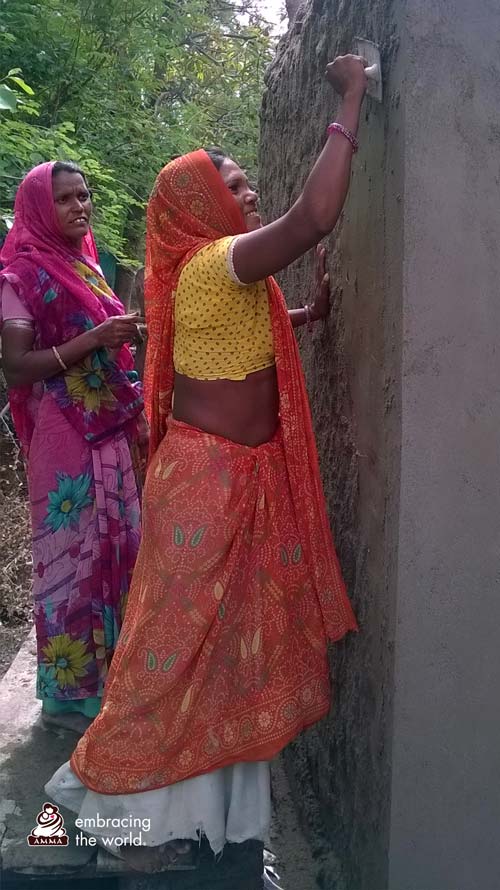
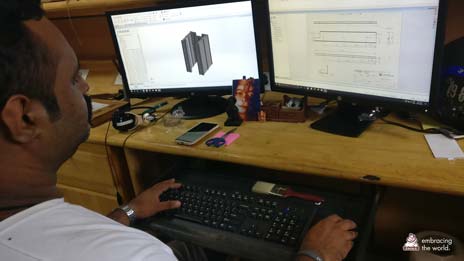
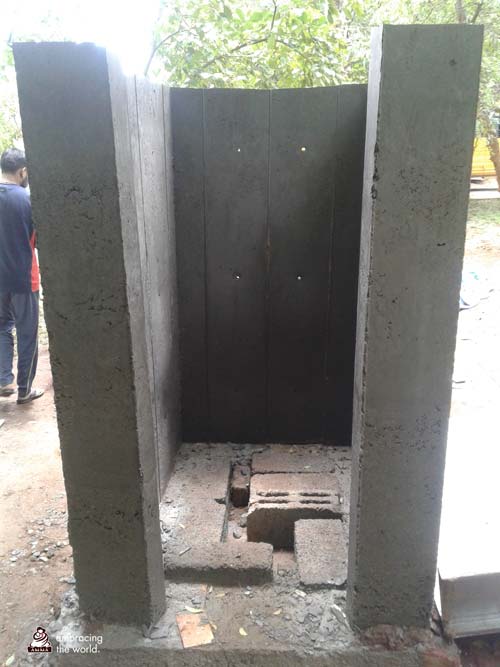
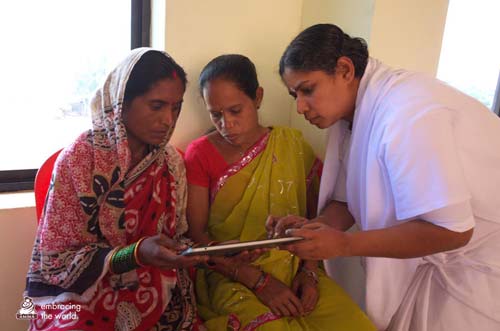
AMMACHI Labs does not just build toilets. The center uses educational methodologies through community mobilization, capacity building, skill development and sustainability maintenance for a community-led total sanitation approach, utilizing innovative e-Learning methods such as the tablet based Rural Toilet Builder course. Empowering women to build toilets and educate themselves about sanitation and sustainability is part of the two year, pan-India initiative jointly funded by the United Nations Democracy Fund (UNDEF) called the “Women Empowerment: Community Sanitation through Democratic Participation” (WE:CSDP) which aims to empower at least 5,000 women in rural communities across India to champion sanitation and community development.
Speaking about this initiative, Amma commented, “A harmonious blend of selfless service, while providing the necessary awareness, is true compassion. This project will provide much-needed amenities to those who truly need them. Along with construction, education is also required. The villagers need to be taught that open defecation leads to water and soil pollution, which further contaminates food and leads to many types of parasitic infections. In our organization’s experience with toilet construction for the poor, creating this awareness is essential. Otherwise, despite having the proper facilities, they may not use them.”


